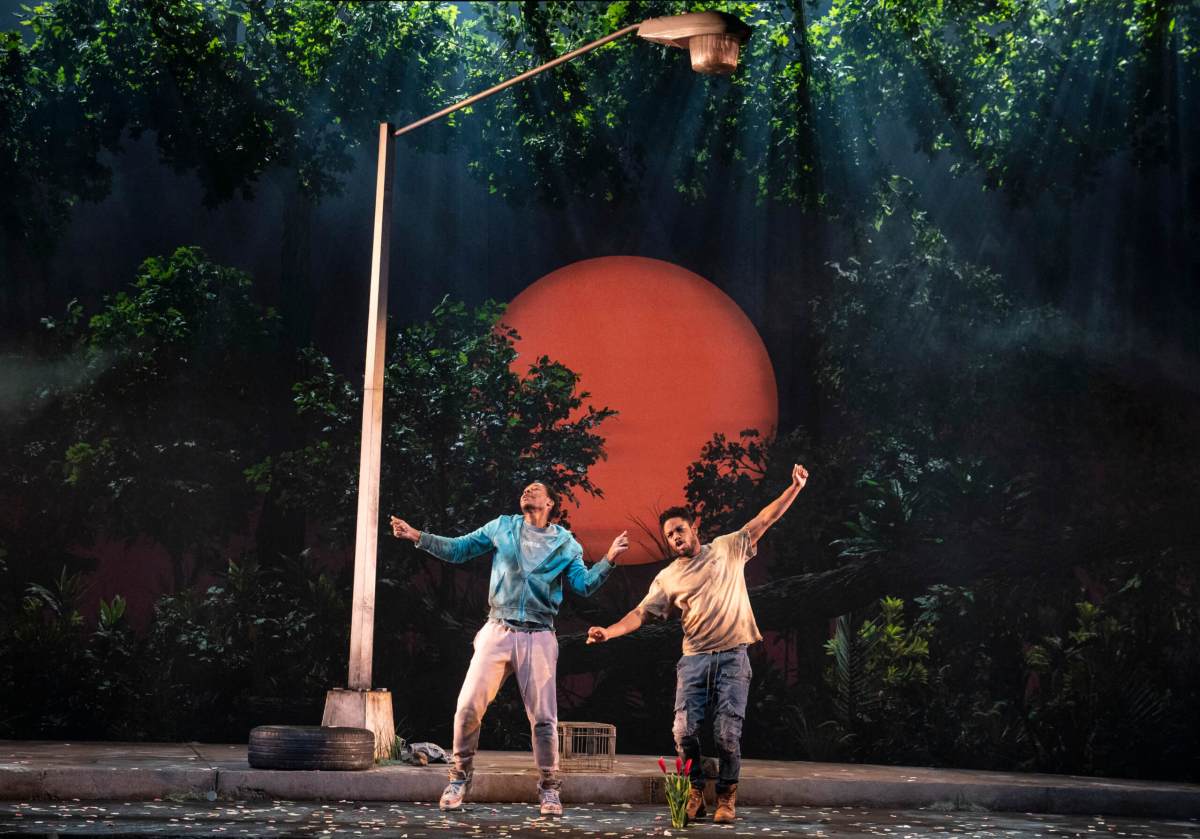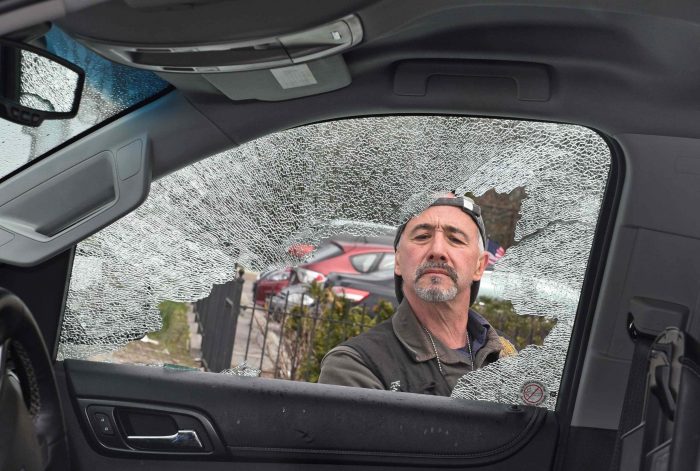The applause at “Pass Over” is vigorous and sustained – and it begins very early on.
Over the loudspeakers, the unseen stage manager, Cody Renard Richard, welcomes the audience members and reminds them that they are back in a Broadway theater and about to see a new play – and the crowd goes wild in response. There have even been standing ovations.
It’s as if the audience, through its applause, is answering back, “Yes, we are so ready for this. We’ve been deprived of live theater for a year and a half. We want to be part of a shared theatrical experience. Hit me with your best shot – even something critical-minded and confrontational. Bring it on!”
The reopening of Broadway following the pandemic has been multifaceted and ongoing. For instance, at one point, Nathan lane and Savion Glover performed short solo turns on an empty stage for a small crowd of frontline workers. Bruce Springsteen then brought back his celebrated one-man show for a limited run. And many hit shows will return in September, with more follow later in the fall.
Antoinette Chinonye Nwandu’s “Pass Over” has become the first play (as opposed to a special event) back on Broadway. But more importantly, “Pass Over” (which was previously produced in Chicago in 2017 and Off-Broadway in 2018) is an enigmatic, experimental, divisive, and racially-conscious work – the kind of show that rarely ever plays Broadway.
The fact that “Pass Over” (which is directed by Danya Taymor, “Heroes of the Fourth Turning”) has earned such a significant position in the reopening of Broadway speaks volumes to the desire of the theater industry to be more diverse and inclusive going forward. (“Pass Over” will also be followed by at least six other plays by African-American playwrights on Broadway this season.)
“Pass Over” (a title that alludes to the Jewish holiday of Passover) is a provocative meditation on disenfranchised Black youth and structural racism that is built upon familiar elements of Samuel Beckett’s existentialist tragicomedy “Waiting for Godot” (with two tramps as lead characters) and the biblical story of Exodus (including a character named Moses, a river to cross, and even plagues).
Set on a desolate urban street, Moses (Jon Michael Hill, guarded but on the verge of eruption) and Kitch (Namir Smallwood, gentler) pass the time by standing still, playing around, trying to look tough, dreaming of escaping the block and finding their “promised land,” and looking out for the police.
Gabriel Ebert (who won a Tony in 2013 for “Matilda”) invades their turf as two different characters: a seemingly polite, light suit-wearing dandy who carries a picnic basket and a flagrantly violent and racist police officer.
The play’s ending has been overhauled for Broadway. (The original ending can be viewed in Spike Lee’s pro-shot adaptation of the Chicago production, which is available for streaming through Amazon Prime.) The overall length has also expanded to make room for more lighthearted moments, including ones where characters break into familiar standards such as “Over the Rainbow” and “What a Wonderful World.”
“Pass Over” is not for everyone – or even most people – but it is for those who are ready and willing to take in a raw, incendiary, and challenging (though often entertaining and gripping) piece of contemporary theater. I admire the play tremendously while also finding it to be repetitive, uncomfortable, and bewildering. I’ve really missed shows like this.
“Pass Over” runs at the August Wilson Theatre through Oct. 10. 245 W. 52nd St., passoverbroadway.com. All attendees must present proof of vaccination status (with limited exceptions such as for children) and wear face masks.





































